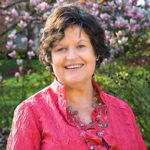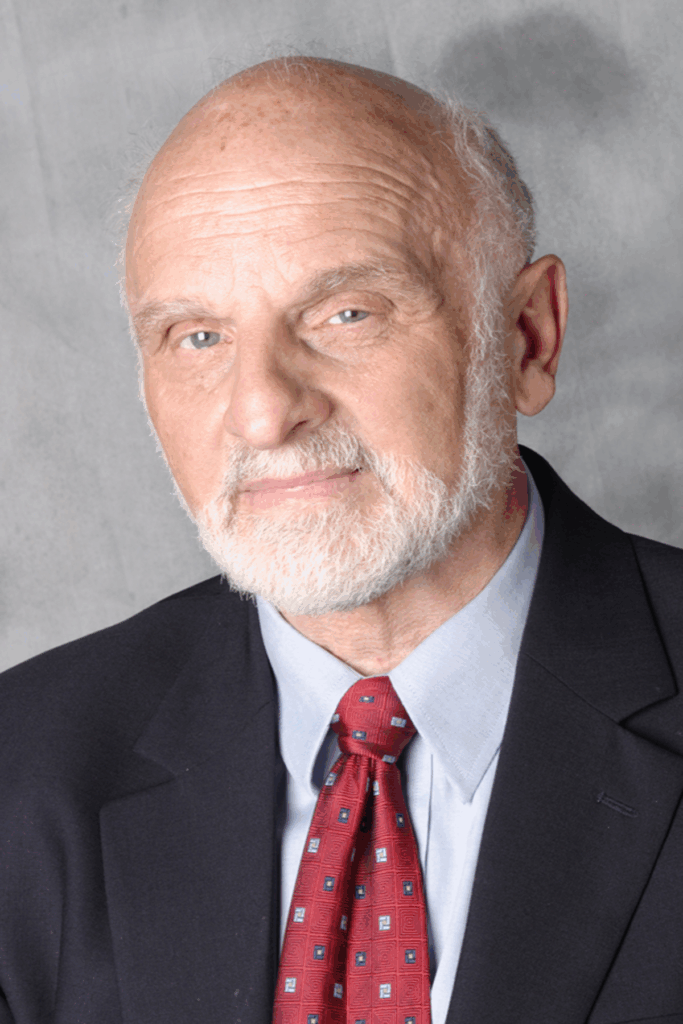October 6, 2025, 7:00 – 8:30 pm, Harrington Center Chapel
Register for a panel discussion in honor of the late Dr. Walter Brueggemann, former faculty emeritus and renowned Old Testament scholar and celebrated preacher. Dean Christine Roy Yoder will facilitate the panel, and panelists are Dr. William P. Brown, Columbia Theological Seminary; Dr. Brennan Breed, Princeton Theological Seminary; Dr. Judy Fentress-Williams, Virginia Theological Seminary; Dr. Davis Hankins, Appalachian State University; Dr. Kathleen M. O’Connor, Emerita, Columbia Theological Seminary; Dr. Robert Williamson, Hendrix College.
There will be a livestream available here on October 6 starting at 7:00 pm.

Brennan Breed currently serves as Associate Professor of Old Testament at Princeton Theological Seminary. From 2012–2025, Brennan was honored to be a part of the faculty at Columbia Theological Seminary, teaching alongside his Old Testament colleagues, Dean Christine Roy Yoder and Professor William P. Brown. He is currently working on the early Hellenistic period in Egypt and Judaea with Davis Hankins and writing a commentary on the book of Daniel.

William P. Brown is an ordained minister of the Presbyterian Church (USA) and the William Marcellus McPheeters Professor of Old Testament at Columbia Theological Seminary in Decatur, Georgia. Bill has also taught at Union Presbyterian Seminary in Richmond and at Emory University. His teaching and writing explore the intersecting issues of justice, creation care, and hope from biblical and theological perspectives. Bill is the author of several books and numerous essays, including Sacred Tension: Embracing Dialogue and Dissonance in the Old Testament (Upper Room), Deep Calls to Deep: The Psalms in Dialogue amid Disruption (Abingdon), A Handbook to Old Testament Exegesis (WJK), Sacred Sense (Eerdmans), Wisdom’s Wonder (Eerdmans), The Seven Pillars of Creation (Oxford University), Seeing the Psalms (WJK), as well as editor of Engaging Biblical Authority (WJK).

Davis Hankins is a 2005 graduate of Columbia Theological Seminary. He then earned a PhD in Hebrew Bible from Emory University, and since 2011 has taught in the Department of Philosophy and Religion at Appalachian State University. He is currently Director of the Center for Judaic, Holocaust, and Peace Studies and Associate Professor of Religious Studies at Appalachian State University in Boone, NC, where he lives with his wife, Stephanie, a PC(USA) minister and 2006 graduate from Columbia. Davis and Stephanie have two teenage boys, Miller and Nathaniel.

Robert Williamson Jr (Bobby) is Professor of Religious Studies at Hendrix College and Theologian-in-Residence of Canvas Community, a church for those living on the streets of Little Rock, Arkansas. After graduating from Columbia in 2001, Bobby earned a postgraduate degree in Jewish Studies from Oxford University and a PhD in Hebrew Bible from Emory University. He speaks frequently at churches and conferences around the country and serves as producer and cohost of BibleWorm, a Narrative Lectionary podcast exploring the wisdom of the biblical text for people of faith today. His most recent book is Reading the Bible with Brueggemann: Scripture’s Power to Remake the World, forthcoming from Abilene Christian University Press in November. He lives in Little Rock with his wife Lindy Vogado and their two young children.

The Reverend Dr. Judy Fentress-Williams is in bi-vocational ministry in Alexandria, VA as the Dodge Professor of Biblical Interpretation at Virginia Theological Seminary and the Senior Assistant to the Pastor for Teaching and Preaching at the Alfred Street Baptist Church. Dr. Fentress-Williams received her Ph.D. in Hebrew Bible from Yale University in 1999. She earned her M.Div. from Yale Divinity School in 1990 and her A.B. in English from Princeton University in 1984 with certificates in African-American Studies and American Studies. Today, the Rev. Dr. Fentress-Williams lives at the intersection of the church and the academy. In addition to her tenured teaching position at VTS, she works with the Christian Life Institute, Ministers in Training programs and teaches Bible Study at the historic Alfred Street Baptist Church. Dr. Fentress-Williams’ published work reflects her interest in a literary approach that highlights the multiple voices in scripture. Her most recent publication is entitled Holy Imagination: A Literary and Theological Introduction to the Whole Bible. She published a commentary on the book of Ruth for the Abingdon Old Testament Commentary Series and was a contributor and Old Testament Editor for the CEB Women’s Bible. Published articles include, “Location, Location, Location: Tamar in the Joseph Cycle,” in Bakhtin and Genre, “Exodus” in the Africana Bible, “Esther” in the Fortress Old Testament Commentary and “The Writings” in the Fortress Companion to the Old Testament Introduction. She is currently working on a Genesis commentary. Judy is married to Kevin Williams, M.D., and they are the proud parents of Samantha and Jacob.

Kathleen O’Connor received her educational certification from Mount Saint Mary College in 1966, an M.A. from Providence College in Biblical Studies in 1973, and a Ph.D. from Princeton Theological Seminary in Old Testament in 1984. After receiving her Ph.D., Dr. O’Connor served as a professor of biblical studies at Maryknoll School of Theology from 1982 to 1994. She then joined Columbia Theological Seminary as a professor of Old Testament language, literature, and exegesis from 1995 to 2004, and later became the William Marcellus McPheeters Professor of Old Testament from 2005 to 2010. Dr. O’Connor is a well-known figure in the field of biblical studies with a focus on trauma and disaster research. In 2015, Columbia Theological Seminary established the Kathleen O’Connor Lectures to honor her contributions to biblical scholarship. Dr. O’Connor has received numerous awards for her contributions to biblical scholarship, including the Henry Luce III Fellowship in 2004-2005 for The Moral Formation of Community after Disaster in the Book of Jeremiah. Her book Lamentations and the Tears of the World received the First Prize in Scripture awarded by the Catholic Press Association in 2003. In May 2016, she received a Distinguished Alumni/ae Award from Princeton Theological Seminary.

Christine Roy Yoder is the Senior Vice President, Dean of Faculty and Academic Affairs, and J. McDowell Richards Professor of Biblical Interpretation at Columbia Theological Seminary. Her interests include Israelite and ancient Near Eastern wisdom literature; the social-historical and theological dynamics of the post-exilic period; the short stories of Ruth, Esther, and Jonah; and biblical conceptions of the moral self. She received her BA from Swarthmore College and both her MDiv and PhD from Princeton Theological Seminary.
Walter Brueggemann Collection Exhibition – October 6 & 7, Harrington Center Lobby
The C. Benton Kline, Jr. Special Collections and Archives is honored to house the Walter Brueggemann collection. In celebration of this panel discussion, the Archives staff has assembled a small exhibit highlighting materials from the collection. The exhibit is entitled “Prophetically Imaginative, Politically Active, and Prayerfully Poetic,” to highlight documents, images, and a recording in which Brueggemann embodies each of these qualities individually, and often spectacularly, all at once.

Obituaries for Walter Brueggemann published in major newspapers highlight his work on prophets, imagination, and power structures viewed through a sociological lens. While these descriptions are not wrong, we—two of Walter’s Old Testament colleagues at Columbia Theological Seminary—think they overlook too much of his life’s work. For Walter, the biblical text was everything: potent and piercing literature, a site of dynamic encounter, and a source of conflicting theological perspectives through which to perceive the world.
Along with other scholars, Walter shifted academic study of the Bible away from compositional history of texts and its relentless parsing of sources. For him, historical scientific methods of the last centuries could contribute only minimally to interpretation because narrow concern with the texts’ creation offered neither sustenance nor solace to the Church. Scholarship’s singular focus on written and oral sources left the text barren and believers thirsty. Walter sought his inspiration elsewhere.
Initially, he turned to the rhetoric of the text, to close readings of what the text says and how it says it. He studied genres, especially narrative and poetry with their subdivisions and language in wealthy abundance. Walter expanded his exploration to study the Jewishness of the Old Testament in both its practices and modes of thinking. He asked what texts might say to historical audiences who produced them: how texts shaped imagination, motivated behavior and, above all, invited relationships with God, the world, and its inhabitants. Walter studied Jewish and Christian reinterpretations of texts to show how multiple meanings emerged from and for different contexts. By dramatizing compelling stories and flawed human characters, as well as the benefits of praise, complaint, and lament, Walter brought the Bible alive and invited readers into the Bible’s conflicts and weighty disputes about theological ideas.
Perhaps at the heart of Brueggemann’s work was his exploration of the character of God. Biblical texts, by their very multiplicity of experiences and viewpoints, their unresolved testimony and counter-testimony, portray an uncontainable God. Across Walter’s work, he insisted that God is at once radically sovereign, righteous, giver of steadfast covenant love (hesed), and immersed in the fray of human existence. God appears in contradictions as generous, mysterious, conflicted, fearsome, hidden, present, punishing, and weak. The Bible names God in numerous ways yet God remains unnamable. Because Walter recognized the literary and historical character of biblical texts, literalism had no home in his work. God never settles into one set of theological names or formulations.
Walter Brueggemann had an amazingly integrative mind. He read and used everything significant that came across his path: literary criticism, poetry, newspapers, psychology, philosophy, political viewpoints, novels, history, as well as theology. Often we spotted him walking across Columbia’s campus carrying stacks of books, by far the most prolific user of the library and interlibrary loan. He reveled in the arts, including classical and jazz music, theater, and movies (especially on Friday afternoons). These expansive habits gave Walter ample material for his preaching and teaching and provided him with surprising connections among diverse disciplines and biblical texts. His popular descriptions of orientation, disorientation, and reorientation, to name functions of the psalms, for example, drew from philosopher Paul Ricoeur. And Walter laced his lectures and sermons with psychotherapeutic insights gleaned from thinkers such as Sigmund Freud and D.W. Winnicott.
Walter’s disciplined study and interdisciplinary work burst forth not only in publications but also in performance. He was a performer of texts. In the classroom he did not simply narrate or comment on a text; he enacted it. Columbia students surely remember Walter marching back and forth, pushing the imagined Philistine donkey cart as if it were a modern golf cart carrying the captured ark of the covenant. Or his poignant depiction of David’s grief at the death of his son Absalom. “Absalom, Absalom, my son Absalom!” Or his commentary about David’s ability to keep his hands clean from political crimes much like a mafia boss in a contemporary movie.
These classroom enactments involved carefully paced speech. This was evident immediately with the opening prayer, usually crafted that morning on a manual typewriter, where Walter used the language and challenges of the assigned text to offer thanksgiving and petitions for the day. Then, in his lectures, he would move through the text unit by unit, swearing, yelling, and then, in an instant, whispering words of denouement. He lingered over verbs and repeated phrases and key words for emphasis and insight. He underlined the force and effect of Hebrew terms with chalk dust flying. His enormous vocabulary and attention to the poetic power of words gave his performances shape and meaning. With high energy, he made the details of the text immediate and memorable and, by doing so, brought into relief possible implications of the text that were vital and urgent.
Walter’s work on prophetic imagination broke new ground because he pressed beyond analysis of individual oracles and historical settings. He embraced a broader vision of the prophetic vocation. He saw prophecy functioning to overturn hardened worldviews and give birth to alternative social visions of just societies. But beyond this early major work, Walter Brueggemann wrote more than 100 books, many of them also major contributions to other areas of biblical studies. About the abundance of his publications, he often joked, quoting imaginary incredulous colleagues, “What are you calling it this time?”
His books include commentaries on Psalms, Jeremiah, Genesis, and Isaiah. He revived laments for churches that had long since stopped praying them as faithful expressions of loss and grief. He interrogated power structures created by Saul, David, and Solomon, who usurped power from local leaders and constructed royal systems and oppressive worldviews. Walter’s many studies of Exodus highlight the metaphoric power of the brick yard and the liberation of slaves as a potent narrative that prepares for the Passover liturgy and covenant living according to the law of Moses. And then there is his magisterial Old Testament Theology. There Walter exposes across the canon conflicting testimonies about the character of God, historically constructed perceptions that are in unresolvable conflict yet always push toward faith in God.
Beyond his many volumes, Walter composed numerous essays, articles, book reviews, and collected volumes of sermons and prayers. He presented papers and participated in panels at professional meetings. He drew his ideas from liberation theology, feminist theology, black theology, postmodern theories, and critical analyses of consumerist culture. In his academic work, Walter conversed with and sought directly or indirectly the wellbeing of the Church and world. He wrote in ways that reached diverse audiences, crossed denominations, and challenged conventional thinking about faith and culture. Threaded through his work are favored themes of radical justice and divine care for the poor, the afflicted, and the oppressed.
Much of this vast amount of writing Walter accomplished on yellow legal pads, now archived in over 150 banker’s boxes of published and unpublished work in the C. Benton Kline, Jr. Archives at Columbia Seminary. To our continual astonishment, Walter wrote in full sentences and complete paragraphs, though only a few people could decipher his handwriting. For good or ill, his hand and brain were connected directly, Walter would say, and for him to work on a computer interfered with his flow of thought. Scrawled out, his writing was nearly publishable before the ink dried.
Walter’s brilliance and creativity as a scholar, preacher, and lecturer garnered him widespread respect, about which he hardly said anything to his colleagues. He served as the President of the Society of Biblical Literature in 1990. He was awarded a Niebuhr Medal from Elmhurst College. He was one of the first prestigious Henry Luce III Fellows in Theology, and he received eight honorary doctorates.
Despite the ways he expended his energy as a scholar and teacher, he was an engaged institutional citizen and a friend and colleague to so many. He came prepared to meetings concerned with the good of the institution. He argued with his colleagues and often saw larger implications of plans and projects. He could also occasionally be gruff, abrupt, and dismissive of ideas. We two always experienced Walter as a most supportive colleague. He made a point of sharing articles or books with us and others that he thought might be of interest or support research we were doing. He mentored generations of biblical scholars and was often a pastoral presence to students. He was renowned among us for his handwritten notes and emails to celebrate, grieve, and appreciate life’s moments, as well as to comment on committee developments and offer jokes for the day. He wrote thank you notes for thank you notes. His energy seemed boundless, for even as he was teaching, writing, and serving Columbia, he also engaged with local churches on a regular basis as his own worship home and as an extension of his commitment to theological education. It was great fun to be around him in our offices in Richards Center, where he said repeatedly that what we did was better than working. We laughed a lot. About news, the churches, the absurdities of life. Despite invitations to take appointments elsewhere, Walter chose to abide at Columbia, perhaps because his commitment to forming pastoral leaders for the church was a top priority. He took seriously the life of a theological educator.
We are deeply grateful for the privilege and joy of having known and worked with Walter Brueggemann. We stand with the great cloud of witnesses who grieve and remember him. And we are certain that his work matters now more than ever to the Church and the world. Rest in peace, good and faithful servant.